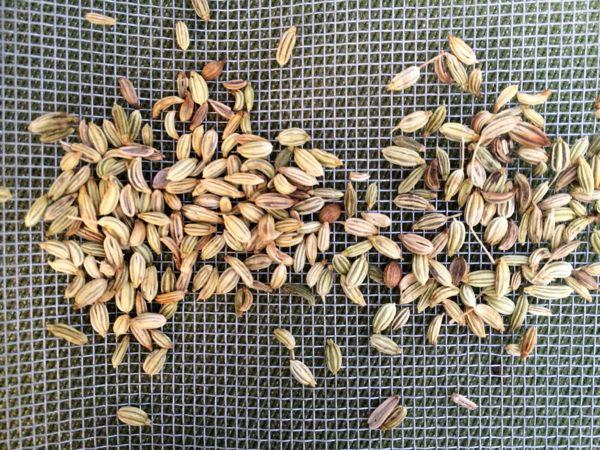Just in time for Earth Day, farmers have spring fever! All the good things about being a farmer are happening right now: planting, growing, the smell of soil, birdsongs, longer days, and muscles flexing after winter rest. The maddening, exhausting and difficult things about farming are dim memories from past years and small clouds on this season’s distant horizon.
So, while we enjoy the warmth of the greenhouse and plow through routine tasks like potting-on and thinning, our minds have plenty of time to ponder. Good time to speculate on the future of our niche in food production.
Farming, no matter the sector or the scale, begins with seed. Historically, many farmers saved their seed to plant the next year. With non-hybrid grains it was relatively easy. Corn, wheat, soy, rye are all harvested as mature seeds. A farmer simply saved the bushels of grain needed to plant in the spring and sold the rest or fed it to animals. Vegetable seeds are more complicated. We harvest vegetables well before the seeds are mature, so seed saving takes several extra steps.

With vegetables that produce seeds on the inside or in pods, like peppers, watermelon or beans, seed saving is easy. Just let the plants get very, very ripe, remove the seeds and wash off any flesh, then dry and store. With biennials or plants that grow best from tubers or root cuttings, it can be a complicated process that takes more than a year. The average farmer or gardener is less able to successfully save seeds under those conditions and eagerly buys seed for those crops. When there is a need, an industry is born; commercial seed companies got their start in the late 1700s in Europe.
Over 250 years later, I am worried about the state of the vegetable seed industry. Like so many other industries, consolidation has resulted in just a handful of multinational companies controlling production and sales of nearly all seeds worldwide. With the advent of biotech, lines between the seed industry, the pharmaceutical industry and the chemical industry have blurred. DuPont, Bayer, and Dow are three of the biggest players in seeds as well as drugs and chemicals.
Why does this concern me? I used to be really bad at Monopoly, but not because I didn’t understand the concept. Currently, the effect of consolidation is felt most deeply in commodity crops such as corn, soy, and cotton. According to data from the Organic Seed Alliance, in 2008, about 97 percent of all cotton acres were planted with seeds from just three seed companies: Monsanto, Dow and Bayer. In that same year, 76 percent of corn acres were planted with seed from Monsanto, Syngenta, or DuPont. When so few companies control so much of an industry, prices go up, choice goes down and small, independent companies fold or sell out. Prices of corn seed increased 30 percent from 2008 to 2009, and after an independent seed company was acquired by Monsanto, the number of non-GMO varieties of corn seed offered dropped from 33 to just three.

The consolidation in the corn seed industry has been so dramatic that the Department of Justice and USDA initiated an anti-trust investigation in 2009. Fifteen thousand comments and many years later, no meaningful response has been made. Consolidation continues unabated, including the buy-up of many vegetable seed companies.
Will vegetable varieties be held hostage to these same monopolistic effects in the near future? Will GMO traits be inserted into our best yielding and most adapted varieties, reducing the choices organic farmers and organic consumers have? Will seed prices skyrocket? Will research into non-GMO disease or drought resistant varieties dwindle due to lack of public sector funding and restrictive, corporate patents?
I don’t have a crystal ball, and I am a strong believer that when things get well out of whack they eventually right themselves. But, I also believe that in order to right this ship we need engaged and educated people taking action. Seed industry consolidation won’t be slowed by gardeners saving seeds or by community seed-lending libraries, but I do believe that passing GMO labeling laws will drive demand for non-GMO vegetable varieties up, and this will help keep the independent seed companies in the game.
As a consumer, even if you never plant a garden of your own, you can influence the vegetable seed industry. Keep up the fight to label GMOs and we just might win the battle for continued seed choice.
 Linda Halley is Farm Manager at Gardens of Eagan, one of the pioneers of organic farming. She was at the forefront of the CSA farm movement in the Midwest while building various farm businesses, including Harmony Valley. In 2003, she was named farmer of the year by organic farming organization MOSES.
Linda Halley is Farm Manager at Gardens of Eagan, one of the pioneers of organic farming. She was at the forefront of the CSA farm movement in the Midwest while building various farm businesses, including Harmony Valley. In 2003, she was named farmer of the year by organic farming organization MOSES.

